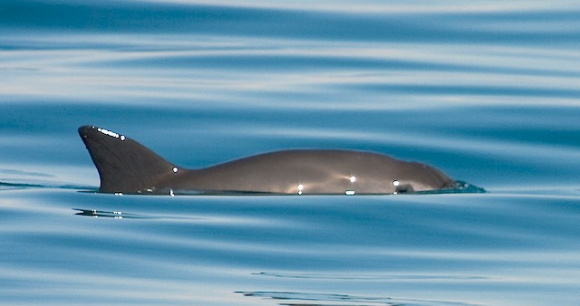
Illegal Fishing in Gulf of California Violates USMCA Trade Agreement, Causes Porpoise’s Near-Extinction
Washington, DC—US Trade Representative Katherine Tai formally requested environmental consultations with Mexico today over its illegal fishing. Aimed at protecting the critically endangered vaquita porpoise, the request is the first step under the enforcement and dispute mechanism of the United States-Mexico-Canada Agreement (USMCA), which could lead to trade sanctions against Mexico.
Despite its trade agreement obligations, Mexico is not effectively enforcing its environmental laws, and rampant illegal fishing in the Gulf of California has caused the vaquita’s near-extinction. Today’s request is the first time the US government has invoked the USMCA’s environmental consultation provision since the trade agreement took effect in 2020.
“This is a big move that could save these little porpoises from extinction,” said Sarah Uhlemann, international program director at the Center for Biological Diversity. “Illegal fishing is out of control in Mexican waters, and the vaquita is paying the highest possible price. We’re glad the US government is taking Mexico to task for violating its environmental obligations and threatening the vaquita’s existence.”
Only 10 vaquita likely remain on Earth. Vaquita become entangled and die in fishing gear set to catch shrimp, totoaba (a large fish in demand in China for its swim bladder), and other finfish. Yet the Mexican government has repeatedly failed to enforce its own ban on fishing in the vaquita’s Upper Gulf of California habitat. In November, 117 boats were observed in a single day fishing illegally within the “zero tolerance area,” an area so critical for the vaquita that all unauthorized vessels and fishing are banned.
“For the past 25 years, Mexico has repeatedly broken its promises to address illegal totoaba fishing, causing vaquita numbers to plummet as lawlessness and corruption thrive in the Upper Gulf of California,” said DJ Schubert, wildlife biologist at the Animal Welfare Institute. “We welcome today’s action by Ambassador Tai, and urge administration officials to send an unequivocal message to Mexico that it will be held accountable for hastening the vaquita’s extinction.”
In August 2021, conservation groups requested that the US trade representative initiate enforcement proceedings against Mexico over its ongoing failure to protect the vaquita.
“The legal and illegal trade in shrimp and fish from Mexico has been ravaging the vaquita porpoise for decades,” said Zak Smith, director of the Natural Resource Defense Council’s international wildlife conservation program. “It’s been made possible by the framework of poorly designed and enforced trade agreements. Today’s action by the US trade representative signals the possibility of a new approach to tackling environmental destruction caused by international trade. It’s about time and the US should take strong actions against Mexico for pushing the vaquita to extinction.”
The United States and Mexico will now attempt to resolve the dispute through discussions with senior government officials. If they are unable to reach an agreement, the United States may request a formal dispute panel, which can result in trade sanctions.
Marjorie Fishman, Animal Welfare Institute
[email protected], (202) 446-2128
Sarah Uhlemann, Center for Biological Diversity
[email protected], (206) 327-2344
Alejandro Olivera, Center for Biological Diversity
[email protected] (en español), +52 612 104 0604
Kari Birdseye, Natural Resources Defense Council
[email protected], (415) 350-7562
The Animal Welfare Institute is a nonprofit charitable organization founded in 1951 and dedicated to reducing animal suffering caused by people. AWI engages policymakers, scientists, industry, and the public to achieve better treatment of animals everywhere—in the laboratory, on the farm, in commerce, at home, and in the wild. Follow us on Facebook, Twitter, and Instagram for updates and other important animal protection news.
The Center for Biological Diversity is a national, nonprofit conservation organization with more than 1.7 million members and online activists dedicated to the protection of endangered species and wild places.
The Environmental Investigation Agency is an international campaigning organization committed to investigating and exposing environmental crime and campaigning to protect endangered species and the natural world. EIA has worked to increase protections for whales, dolphins and porpoises for more than 30 years.
The Natural Resources Defense Council is an international nonprofit environmental organization with more than 3 million members and online activists. Since 1970, our lawyers, scientists, and other environmental specialists have worked to protect the world's natural resources, public health, and the environment. NRDC has offices in New York City, Washington, D.C., Los Angeles, San Francisco, Chicago, Bozeman, MT, and Beijing. Follow us on Twitter @NRDC.